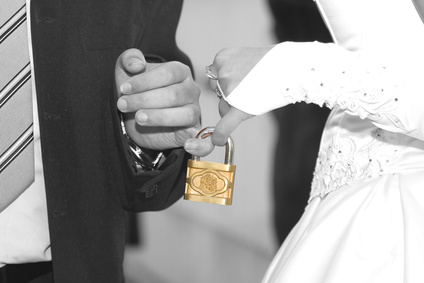At a holiday get-together this weekend, friend and I were talking about what we’d do if could let go of our real jobs (and health insurance) and reinvent ourselves. Curiously, we both would immerse ourselves in art — she, paper mache, me, collage — not unlike what longtime broadcast journalist Dana King is doing with her sculpture. Not that we don’t love what we do, but at midlife a change would do us good.
Not everyone reinvents him or herself at midlife, but many of us are at least thinking about it. The economy has forced some of us to, although it’s better to choose how and when you shift gears and into what than having it forced upon you. But one kind of forced reinvention — divorce — generally seems to be a positive thing, especially if you’re a woman. Divorce is when most of us redo our look, tweak our attitudes and beliefs, examine our own baggage, embrace new challenges, revisit long-shelved passions and rediscover long-lost sexual passions. (Although if you Google “midlife reinvention, it seems to be a uniquely female thing, like “empowerment.”) 
But, must you divorce to better yourself and approach the second half of your life with renewed enthusiasm and a sense of adventure? Can you tweak marriage to give yourself what you want?
That’s what Pamela Haag presents in her book Marriage Confidential: The Post-Romantic Age of Workhorse Wives, Royal Children, Undersexed Spouses, & Rebel Couples, which I’ve just finished reading. Marriage as we know it and practice it ties our hands in so many ways, and offers us few options when it staggers. As she writes:
If you’re in a melancholy marriage whose problem isn’t easily solved, your choice is either to stay married on marriage’s terms, or to divorce and lose all the things that do work in a marriage, or a family, and that you ideally want to maintain.
What does she suggest? Make marriage work for you. In other works, reinvent yourself within your marriage by reinventing the marriage itself — which is, of course, what divorce therapist Susan Pease Gadoua and I are suggesting in our book project, The New I Do. But we are going one step beyond Haag; we’re actually presenting various marital models and details on how they would work. And instead of tweaking already existing marriages — which may be too set in their ways, or suffering from inertia or just too much damage — we are offering new ways to marry.
It’s true that being solo, whether divorced or never married, gives you a lot of freedom, which is what many married types say they crave; it’s similar to what my now former husband said to my friend at a party: “You know, I like being married but living like I’m single.”
But, shouldn’t marriage give you freedom, too? I think that’s the best kind of marriage, one that respects and encourages each partner’s growth so he/she can be the best he/she can be. That’s why, to tweak what my former husband said, I suggest married people should live like they’re divorced, not single, with all the benefits of expectation-busting hindsight, but still be committed to each other. What’s holding us back? No one but ourselves. As Haag says:
(W)e need to take responsibility for our own contentment and adult humanity. We can’t readily blame legal or economic barriers, at least if we’re heterosexual couples who the state allows to marry, because there aren’t that many obstacles left. The struggle is more about courage than law. It’s about making fewer judgments about others or ourselves and having more imagination.
We have it in our power to create the marriages we want. And that, she says, includes sexual freedom — such a open marriages. Monogamy, as much as we say we want it, doesn’t seem to suit us all too well.
Many people have brought their marriage to the brink and survived, like “Bones” actor David Boreanaz, who claims his 2010 affair with Tiger Wood’s mistress, Rachel Uchitel, made his marriage stronger because he and wife Jaime Bergman have been working to repair the damage. I don’t doubt that some couples can salvage and improve on a marriage hit by infidelity. But, repairing a marriage isn’t the same is reinventing it. Why go to the brink to get what you want? Why not start off that way?
- Do you believe marriage can give the space and freedom most of us crave?
- Is it easier to tweak an existing marriage, or wed with entirely new marital models?

















Ms. Larson. You are a complete mess in a dress. I can’t believe the questions a grown adult woman (in the third millennium) comes up with – and the scenarios you invent. A woman (or man) listening to you is headed for a brick wall going 100mph, you have an extremely self destructive manner, a man has no chance from the start trying to communicate with your already made up mind.
I implore you, don’t interfere with your two sons emotional development, they’ll spend their entire lives in and out of bad relationships and marriages (and divorce courts) listening to your craziness. They’ll be a therapists/mental health professional dream patients. You are clueless about this man and woman thing. And if any man found himself the target of your romantic interests I’d tell him to run for his very life – across the freeway, head on into speeding rush hour traffic – if he didn’t make it at least the end would come quickly. I honestly believe the man who’d find you of interests craves infancy.